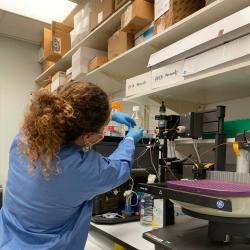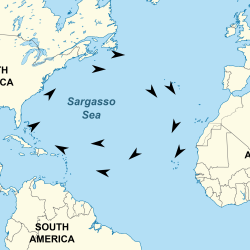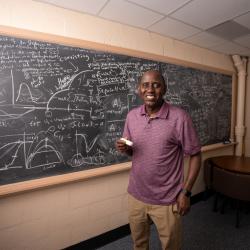Joshua Weitz Joins UMD’s Department of Biology as the Clark Leadership Chair in Data Analytics
Weitz will continue to explore how viruses impact human and environmental health.
When Joshua Weitz joins the University of Maryland in July 2023, it will mark the latest step on a scientific mission that has inspired and motivated him for the last 20 years: studying how viruses transform human health and the fate of our planet.

"I hope to make a difference in elevating our understanding of how viruses shape both human and environmental health given the critical global planetary health questions at stake,” Weitz explained. “In doing so, I look forward to supporting the next generation of quantitatively trained scientists make a lasting impact in the life sciences.”
At UMD, Weitz will be a professor in the Department of Biology and hold the Clark Leadership Chair in Data Analytics, a position established through the A. James & Alice B. Clark Foundation’s Building Together: An Investment for Maryland. The Clark Foundation's gift was matched by $1.46 million through the Maryland E-Nnovation Initiative (MEI), a state program created to spur basic and applied research in scientific and technical fields at the state’s colleges and universities.
“We are thrilled to have recruited Joshua Weitz to the University of Maryland as an endowed Clark Leadership Chair,” said Jennifer King Rice, senior vice president and provost at UMD. “He is an exceptional scholar who connects the biological and mathematical sciences and whose research has a major impact on the public good.”
Weitz, who shared his insights on COVID-19 as the keynote speaker at UMD’s Bioscience Day in October 2022, spent the past 16 years as a faculty member at the Georgia Institute of Technology, where he launched the Quantitative Biosciences Graduate Program. The program prepares students for quantitative challenges, new discoveries and fulfilling careers at the interface of the physical, mathematical, computational and biological sciences.
An award-winning author who has published more than 140 peer-reviewed journal papers, Weitz also holds the Blaise Pascal Chair at the Institut de Biologie of the École Normale Supérieure in Paris and is an elected Fellow of the American Association for the Advancement of Science and the American Academy of Microbiology.
For Weitz, his new role is well-suited to his highly interdisciplinary and collaborative research. He’s excited to collaborate with faculty in biology and strengthen bridges to UMD’s Department of Physics, Institute for Physical Science and Technology, Institute for Advanced Computer Studies, and Brin Mathematics Research Center.
“I’m really happy we were able to recruit Joshua,” Biology Department Chair Joshua Singer said. “By virtue of his theoretical approach, he is able to study a wide-ranging set of topics, from the COVID-19 pandemic to the effect that viruses infecting bacteria have on ocean carbon cycles. He also will bring a number of students and postdoctoral fellows with him, providing a very nice boost to the community of biologists in the department.”
Fascinated by physics
Growing up in Kensington, Maryland, Weitz was passionate about two things—science and sports. If he wasn’t on the field playing soccer, he was teaching himself programming on his parents’ computer or exploring his fascination with physics and math. Eventually, he realized science was his path to a future career.
Weitz advanced his skills in math, science and coding in high school. He landed his first research internship coding Fortran 77 for a local defense laboratory and went on to major in physics at Princeton University. Then, as Weitz pursued his Ph.D. in physics at the Massachusetts Institute of Technology, he began to see his research interests in a whole new light.
“I started to explore what is called nonlinear dynamics or dynamical systems in the context of biology and ecology,” Weitz explained. “I was excited by the prospect of applying my skill sets in physics to ecological questions: how do organisms interact and how do populations change?”
Weitz continued on that path, working in ecology and evolutionary biology, in his postdoc at Princeton with Simon Levin (Ph.D. ’64, mathematics).
“I was working on an area called interacting particle systems—how do many particles interacting at the microscopic scale lead to emergent phenomena at the macroscopic scale? And that still informs how I study viruses,” Weitz said. “You often have millions or tens of millions of viruses in a milliliter of sea water, a gram of soil and in the context of infections. These interactions between viruses and cells lead to collective effects, shaping not only the fate of individuals cells, but also diversity, ecosystem function and evolution.”
Weitz's research focuses on two main areas: studying the ecology of viruses and microbes as well as the epidemic spread of viruses in human populations.
“We’ve been trying to focus on how viruses transform the face of cells, populations and ecosystems,” Weitz explained. “I try to keep my focus on the big question—how do viruses impact human and environmental health?”
Challenged by COVID
For Weitz, the challenges of COVID-19 changed everything. Even as the pandemic began to hit the headlines in early 2020, he was wrapping up his first papers on the subject; estimating the potential strength of the disease and the capacity of COVID-19 to spread asymptomatically. Then, focusing all his lab’s efforts on the virus, Weitz organized a rapid-response effort at Georgia Tech, drawing from his research on viruses and behavior.
“Responding to COVID-19 was both singularly intense and meaningful,” Weitz reflected. “Working with colleagues at Georgia Tech and elsewhere, we identified asymptomatic components of spread that we felt were problematic and translated those concepts into action through our COVID-19 Event Risk Assessment Planning Dashboard, which reached more than 16 million people. We also collaborated with dozens of colleagues across Georgia Tech to implement an asymptomatic testing program that provided more than 500,000 free tests for students, staff and faculty to help protect the community.”
Awarded the Royal Society of Biology Postgraduate Textbook Prize for his monograph “Quantitative Viral Ecology: Dynamics of Viruses and Their Microbial Hosts,” Weitz is currently wrapping up a new textbook series called “Quantitative Biosciences: Dynamics Across Cells, Organisms and Populations,” set for release in early 2024. For him, it’s part of a bigger mission to advance quantitative training in the life sciences for generations to come.
"Catalyzing next-generation research discoveries requires training and supporting people where they are in their careers," he said. "We need to make sure they have opportunities to build the field and create the next set of discoveries in the future."
“Community is key”
Whether it’s educating the next generation of scientists or taking his own interdisciplinary research to the next level, Weitz believes having a supportive scientific community is key—and at Maryland, he believes he found exactly that.
“There’s a growing community of folks at UMD in bio, in public health, in physics, in math and in other departments that are interested in understanding the interface between microbes, viruses, health and the environment. And there are also a number of key folks using theoretical methods to analyze and simplify large data sets as a means to make sense of complex living systems,” Weitz explained. “Having that critical mass and community is key.”
From the UMD campus to the D.C. area, Weitz sees nothing but exciting possibilities ahead.
“Given my experience in COVID and my interest in the intersection between viruses, health and climate change, I feel like the D.C. area is going to be a terrific place to grow and evolve,” Weitz explained.
And he can’t wait to get started.
“I couldn’t be more delighted,” he said. “I try to communicate my passion for science whenever I can, and I’m thrilled to bring that spirit to College Park.”







